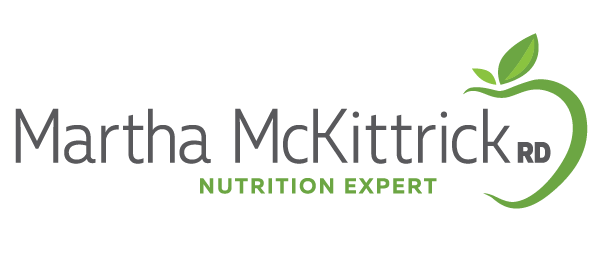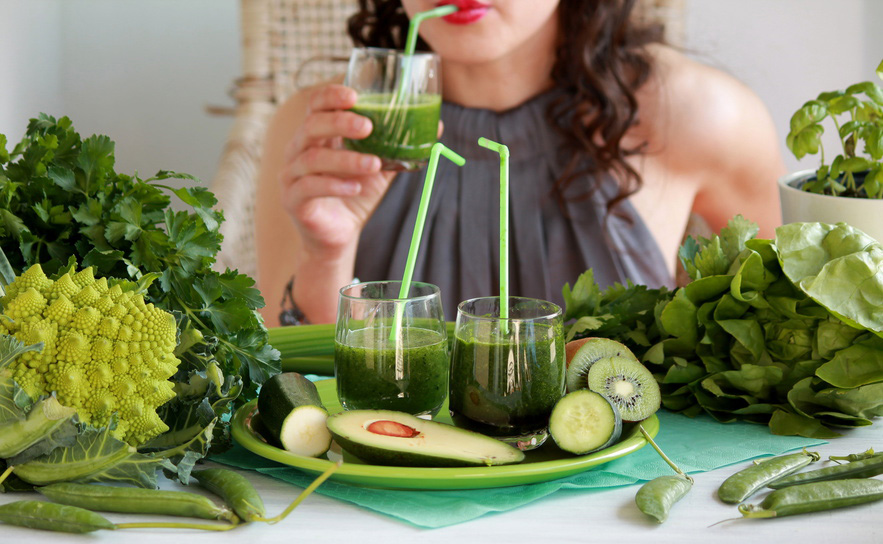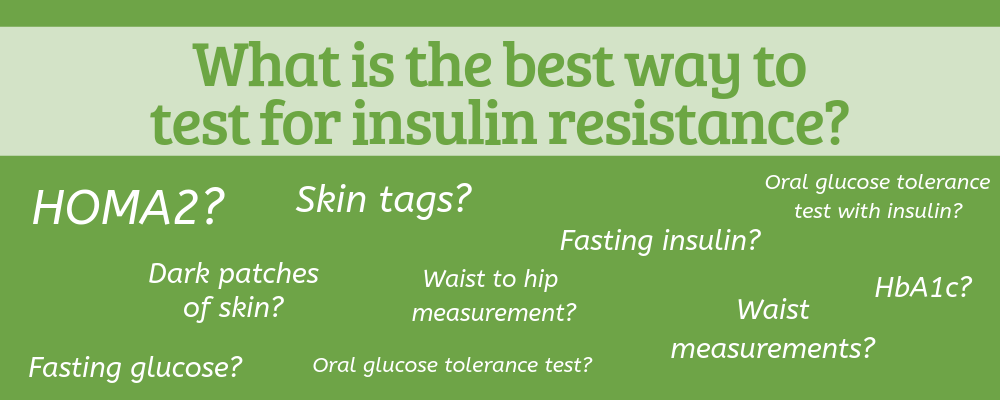Are Plant-Based Diets Healthy?

Plant based diets are HOT right now! You’ve probably noticed been noticing more stores carrying products that display “plant-based”on their labels. I was just in my local coffee shop yesterday and saw plant based energy bars on the counter as well as oat milk for the coffee. Plant based products like dairy free yogurts, veggie burgers, and nuts milks are appearing more in local supermarkets. The number of new US food and drink products that mentioned “plant-based” grew 268 per cent between 2012 and 2018! But the question is – are plant based diets healthy and can you meet your nutritional needs? Read nutrition student, Catherine Scott Fischer’s, blog post to see if a plant based diet is for right for you.
Plant-based diet versus vegan diets
There is no ONE exact definition of a plant based diet. However, in general, it eliminates all animal-derived products including meats, fish, dairy, eggs, honey. It focuses on wholesome and unrefined plant sources such as fruits, vegetables, whole grains, beans, nuts, seeds, legumes. It doesn’t include processed carbs like refined carbohydrates like white bread and white pasta or processed foods such as cookies and cereals.
 So you may be asking yourselves, isn’t this the same thing as a vegan diet? Although some use vegan and plant-based interchangeably, they are different. A vegan diet similarly eliminates all animal by-products but additionally eliminates the use of makeup that contains or has been tested on animals and certain clothes (leather, fur, silk, wool). However, a vegan diet does not eliminate processed foods, as long as the food item does not contain any animal by-products, it’s a go!
So you may be asking yourselves, isn’t this the same thing as a vegan diet? Although some use vegan and plant-based interchangeably, they are different. A vegan diet similarly eliminates all animal by-products but additionally eliminates the use of makeup that contains or has been tested on animals and certain clothes (leather, fur, silk, wool). However, a vegan diet does not eliminate processed foods, as long as the food item does not contain any animal by-products, it’s a go!
Classic Oreo example – Oreos are vegan because they do not contain any animal derived by-products, however they are not plant-based because they are highly processed.
Are plant-based diets healthy?
Plant based diets are hot right now for good reason! In addition to antioxidants, they’re rich in fiber, Vit B6 and Vit C, folate, potassium, magnesium, phosphorus, beta-carotene, and phosphorus and are associated with numerous health benefits including:
- Decreases insulin resistance: This particular prospective study conducted in the Netherlands, explored plant-based diets vs animal based diets in regard to insulin resistance. They followed around 7000 participants and analyzed their dietary intake through food frequency questionnaires and “constructed a plant-based dietary index (range 0-92) assessing adherence to a plant-based vs animal-based diet.” They measured insulin resistance at baseline and thereafter at each follow-up. After the 7-year mark, their findings revealed that a plant-based diet was associated with lower insulin resistance, lower prediabetes risk, and reduced type 2 diabetes risk.
- Prevents and reverses heart disease: A review published in the journal Progress in Cardiovascular Diseases where researchers compiled multiple clinical trials and observational studies all consistently revealed undeniable evidence between consumption of plant-based diets in both the prevention and reversal of atherosclerosis, a decrease in markers related to cardiovascular disease (these markers included blood pressure, blood lipids, and weight), and a reduced risk of developing metabolic syndrome. For all of you statistical lovers out there, plant-based diets reduce the risk of death from CVD by 40%, reduces risk of coronary heart disease by 40%, hypertension by 34%, and is associated with a reduction of 29 mg/dL and 23 mg/dL total cholesterol and LDL-C levels compared to non-vegetarian diets.
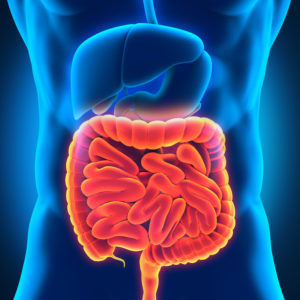 Improves gut microbiome and reduces inflammation: Dr. Gersh underlines scientific research that shows staggering improvements in relevant biomarkers for Type 2 Diabetics who follow a plant-based diet —remarkable reductions in HgbA1C levels, fasting blood sugar, lipid profile, body weight, BMI, blood pressure etc. A plant-based diet has been proven to cultivate and flourish healthy gut bacteria improving overall gut microbiome, in turn also reducing inflammation levels. More and more research is being conducted on gut microbiome health as it is considered a building block for overall health and is involved/effects every biological aspect of our bodies from digestion and metabolism to cognitive and immune function.
Improves gut microbiome and reduces inflammation: Dr. Gersh underlines scientific research that shows staggering improvements in relevant biomarkers for Type 2 Diabetics who follow a plant-based diet —remarkable reductions in HgbA1C levels, fasting blood sugar, lipid profile, body weight, BMI, blood pressure etc. A plant-based diet has been proven to cultivate and flourish healthy gut bacteria improving overall gut microbiome, in turn also reducing inflammation levels. More and more research is being conducted on gut microbiome health as it is considered a building block for overall health and is involved/effects every biological aspect of our bodies from digestion and metabolism to cognitive and immune function.- Lowers cholesterol levels: This one probably does not come as a surprise to you as cholesterol is found in animal products. The American Journal of Cardiology investigated published scientific research to understand the relationship between plant-based diets and plasma lipid concentrations. The diet that imparted the greatest effect on LDL cholesterol levels was a vegetarian or vegan diet that included nuts, soy and/or fiber, having up to a 35% reduction in LDL cholesterol levels.
- Reduces risk of cancer: This study analyzed the correlation between varying dietary patterns; non-vegetarians, pescatarian, vegan, semi-vegetarian and lacto-ovo-vegetarians, and overall cancer incidence rates amongst almost 70,000 participants. A vegan diet showed the most “significant protection for overall cancer incidence in both genders combined and for female-specific cancers”.
 Weight loss: A randomized controlled study conducted in South Carolina explored the effect of plant-based diets on weight loss. Participants were prescribed diets ranging from vegan, vegetarian, pesco-vegetarian, semi-vegetarian and lastly, omnivorous. Vegan participants had the most successful outcome in terms of weight loss and when compared to the omnivorous group, it was a significant difference. It is important to note that calorie restriction was not implemented, it was solely a change in dietary habits.This study focused on overweight, postmenopausal women who were randomly assigned either a low-fat vegan diet or a controlled diet based on the National Cholesterol Education Program guidelines. Similarly, calorie restrictions were not enforced and exercise levels were encouraged to remain at similar levels to prior the study. The low-fat, vegan diet yielded the greatest weight loss in overweight postmenopausal women.
Weight loss: A randomized controlled study conducted in South Carolina explored the effect of plant-based diets on weight loss. Participants were prescribed diets ranging from vegan, vegetarian, pesco-vegetarian, semi-vegetarian and lastly, omnivorous. Vegan participants had the most successful outcome in terms of weight loss and when compared to the omnivorous group, it was a significant difference. It is important to note that calorie restriction was not implemented, it was solely a change in dietary habits.This study focused on overweight, postmenopausal women who were randomly assigned either a low-fat vegan diet or a controlled diet based on the National Cholesterol Education Program guidelines. Similarly, calorie restrictions were not enforced and exercise levels were encouraged to remain at similar levels to prior the study. The low-fat, vegan diet yielded the greatest weight loss in overweight postmenopausal women.
Nutrients of concern in plant-based diets
Although plant-based diets are wholesome and are abundant in fruits, vegetables and legumes, there are some nutrients of concern that consumers should be made aware of before embarking on a plant-based lifestyle so that they can make sure they are getting adequate amounts of all essential vitamins and minerals.
- Protein
The first thing people never fail to reply when someone divulges they eat vegan or plant-based is “what about protein? do you get enough?” The answer is yes! There are so many nutritious and protein-packed plant-based sources. Here are some of them:
- 1. Tofu: The extra firm tofu lends the most similar texture to meat-based products. Add some spices and pan-fry it or pop it in the oven!
Nutrition Facts (1/2 cup): 94 calories, 10g protein - 2. Edamame: Immature soybeans that contain an abundant source of manganese and vitamin K which both contribute to bone health and enhance calcium absorption.
Nutrition Facts (1/2 cup, shelled): 120 calories, 11g protein - 3. Chickpeas: I love how versatile chickpeas are —you can dress them up in spices and put them in the oven and they make a great crunchy, nutritious topping to salads. You can blend them up to make hummus, mash them up to get that flakey texture which imitates tuna fish, or even make chickpea brownies (I was also skeptical at first but they are delicious and you cannot even taste them!).
Nutrition Facts (1/2 cup): 126 calories, 7.2g protein  4. Quinoa: This grain is a complete protein source, providing all the essential amino acids. It is a great source of manganese and phosphorus, both essential for proper bone health and growth. It is additionally a great source of folate which is critical for cell function and tissue growth.
4. Quinoa: This grain is a complete protein source, providing all the essential amino acids. It is a great source of manganese and phosphorus, both essential for proper bone health and growth. It is additionally a great source of folate which is critical for cell function and tissue growth.
Nutrition Facts (1/2 cup, cooked): 114 calories, 4g protein- 5. Hemp seeds: Another complete protein source that lends a nutty texture. It makes for an easy addition to any meal; sprinkle on avocado toast, salads, vegetable bowls, even smoothie bowls. Did you know you can even make hemp seed milk? (it’s delicious!)
Nutrition Facts (3 tbsp.): 160 calories, 10g protein - 6.Tempeh: Similarly to tofu, tempeh is made from soybeans and is a rich source of prebiotics which encourages the growth of healthy, beneficial bacteria in your gut. It is also a great source of calcium, a mineral that is of concern when eating a plant-based diet (we’ll discuss this more down below) and is critical for bone health.
Nutrition Facts (1/2 cup): 160 calories, 16g protein - 7. Seitan: This is a good option for those who cannot tolerate soy-based foods (tofu, tempeh, soybeans) as it is made entirely from gluten, the main protein of wheat. Due to its neutral taste, it is a very versatile food and absorbs seasonings and sauces very well.
Nutrition Facts (1/2 cup): 175 calories, 25 g protein  8.Chia seeds: Known as the best plant-based source of omega-3 fatty acids, an essential nutrient in the prevention and management of heart disease. It is also a great source of dietary fiber and has a very high water-absorbing capacity, in turn increasing the volume of ingested food in your digestive tract thus increasing overall fullness.
8.Chia seeds: Known as the best plant-based source of omega-3 fatty acids, an essential nutrient in the prevention and management of heart disease. It is also a great source of dietary fiber and has a very high water-absorbing capacity, in turn increasing the volume of ingested food in your digestive tract thus increasing overall fullness.
Nutrition Facts (1 tbsp.): 69 calories, 3g protein- 9. Lentils: This legume can additionally imitate a similar meaty texture when cooked and seasoned appropriately. In addition to its abundance in critical vitamins and minerals, it is a rich source of phytochemicals which aid in the prevention of chronic diseases such as type 2 diabetes and heart disease.
Nutrition Facts (1/2 cup, boiled): 115 calories, 9g protein - 10. Black beans: A heart-healthy and anti-inflammatory legume due to its high content of phytonutrients. Its high level of dietary fiber makes for a nutritious yet filling addition to any meal and also helps stabilize blood sugar levels.
Nutrition Facts (1/2 cup): 114 calories, 7.6g protein - 11. Spirulina: This blue-green algae, a type of cyanobacteria that grows in fresh and salt water, as I’m sure you’ve seen, has made its way into many juices/smoothie stores. It is very nutrient dense and acts as a powerful antioxidant, fighting free radicals, and contains anti-inflammatory properties.
Nutrition Facts (1 tbsp.): 10 calories, 4g protein
- 1. Tofu: The extra firm tofu lends the most similar texture to meat-based products. Add some spices and pan-fry it or pop it in the oven!
- Vitamin B12: Is mostly found in animal products including eggs, dairy products, meat, poultry, etc. The nutrient aids in DNA and red blood cell formation, proper nerve function, and cell metabolism.Sources of vitamin B12 for those who do not consume any animal products will mostly come from fortified foods such as fortified non-dairy milk and/or breakfast cereals. Meat substitutes and vegan spreads such as Marmite are also fortified with vitamin B12. Therefore, all of these sources could be consumed by people following a vegan diet, however the options listed above are not all suitable for someone following a strict plant-based diet since most of them are processed. Plant-based eaters will have limited food options when it comes to vitamin B12:
- 1. Nutritional yeast: Our beloved nutritional yeast is gaining popularity and has made it onto another list! In just one tablespoon, it provides 40% of the RDI.
- 2. Fortified non-dairy milk: Some non-dairy milks may contain a lot of added sugar and additives/gums therefore those consuming plant-based should make sure to read the labels and lookout for a clean non-dairy milk brand that is fortified with vitamin B12.
Or a Vit B12 supplement!
- Calcium
You’re going to start noticing that a lot of the foods listed that are rich in one vitamin/mineral are also rich in other critical vitamins and minerals like calcium for example! You will see some foods that make a comeback on several lists, in addition to down below as we discuss other nutrients of concern. That’s the thing about a plant-based diet, since it is a nutrient-dense diet, the likelihood of something you’re eating being rich in numerous nutrients and not just one, is well, highly probable. Here are a few sources of calcium-rich foods:- 1. Chia seeds
Nutrition Facts (1 tbsp.): 69 calories, 3g protein, 90mg calcium  2. Broccoli: Nutrient dense vegetable that has also been shown to improve gut health and reduce risk of chronic diseases.
2. Broccoli: Nutrient dense vegetable that has also been shown to improve gut health and reduce risk of chronic diseases.
Nutrition Facts (1 cup): 31 calories, 2.6g protein, 70mg calcium- 3. Almonds
Nutrition Facts (1 oz.): 164 calories, 6g protein, 243mg calcium - 4. Kale: Make sure to massage your kale before you eat it, it makes it less tough —or add some spices and make kale chips in the oven, another great snack!
Nutrition Facts (1 cup raw): 33 calories, 3g protein, 101mg calcium - 5. Tofu: If you ever get bored of tofu, there are so many great recipes that use tofu to make plant-based cheeses, or even raw cheesecakes if you feel like getting really creative. However, make sure to read the label to be certain it is fortified with calcium.
Nutrition Facts (1/2 cup firm): 94 calories, 10g protein, 434mg calcium
- 1. Chia seeds
- Iron
Although plant-based diets do contain iron, plants have a lower bioavailability than iron found in animal products. Some rich plant-based sources of iron include but is not limited to:- 1. Kidney beans: Buy it canned and rinse off the excess salt —it makes for an easy addition to any meal and requires no prep!
Nutrition Facts (1/2 cup): 112 calories, 7.5g protein, 6mg iron  2. Soybeans & Tofu/Tempeh
2. Soybeans & Tofu/Tempeh
Nutrition Facts for soybeans (1/2 cup): 4.4 mg (25% of RDI)
Nutrition Facts for tofu (6 oz.): 3 mg
Nutrition Facts for tempeh (6 oz.): 3.6 mg- 3. Spinach: Eating it cooked will enhance absorption of iron and other minerals/vitamins that are packed in this leafy green.
Nutrition Facts (1 cup, raw): 7 calories, 0.86g protein, 0.81mg iron - 4. Cashews: A staple snack for many of us, these heart-healthy nuts are shown to reduce blood pressure and raise our good cholesterol. They are also packed with key vitamins and minerals such as vitamin E and K, copper, zinc, and iron which all aid in critical biological functions.
Nutrition Facts (1 oz.): 157 calories, 5g protein, 1.9mg iron - 5. Sesame seeds: These tiny seeds are packed with nutrients and belong to the exclusive class of fibers called lignans which have been shown to reduce cholesterol levels.
Nutrition Facts (1 oz): 103 calories, 3.2g protein, 2.62mg iron  6. Pine nuts: Toasted pine nuts on salads might be one of my top 5 favorite toppings, not to mention they pack a lengthy list of health benefits too.
6. Pine nuts: Toasted pine nuts on salads might be one of my top 5 favorite toppings, not to mention they pack a lengthy list of health benefits too.
Nutrition Facts (1 oz): 191 calories, 3.9g protein, 1.6mg iron- 7. Oats: There are a few blog posts on this, if you’d like to read more on the benefits of oats and are looking for some healthy recipes!
Nutrition Facts (1/2 cup, cooked): 157 calories, 5g protein1.7mg iron - 8. Dark chocolate: I think we’re pretty much all well aware of the antioxidant properties our treasured dark chocolate contains, but did you know it’s also a great source of iron!?
Nutrition Facts (1 oz.): 150 calories, 1.4g protein,3.3mg ironPS: To increase absorption of non-heme iron (aka plant-based iron sources), pair it with a vitamin C rich food in order to increase absorption. It’s also important to eat iron rich foods consistently throughout the day and not large portions continuously as if we consume too much, our bodies absorb even less of it than if we were to consume an appropriate amount.
- 1. Kidney beans: Buy it canned and rinse off the excess salt —it makes for an easy addition to any meal and requires no prep!
- Vitamin D
While you can get Vit D from the sun, approximately 42% of people in the US are deficient in it. Vitamin D plays a role in number of processes in the body, including its essential role in the development of strong and healthy bones as it enhances calcium absorption, the building block for bone health. It is additionally a critical vitamin in nerve and muscle function as well as our immune system. 1. Fortified non-dairy milk:Again, one must check the labels to check ingredients to make sure it aligns with their dietary values.
1. Fortified non-dairy milk:Again, one must check the labels to check ingredients to make sure it aligns with their dietary values.
- 1. Tofu: Some brands do fortify their tofu with vitamin D, however many do not, therefore check labels to make sure it is fortified with vit D.
- 2. Mushrooms: Research has shown evidence that exposing mushrooms out in the sun for a period of time will increase their vitamin D content. For example, brown, crimini mushrooms (84g) when exposed to UV rays, contains 1072 iu vit D, the RDA for vit D is 600 iu/day.Or a Vitamin D supplement!
- Choline
This essential nutrient is critical for our nervous system and aids in the removal of cholesterol from our liver, reducing any acquired build-up. Pregnant women should be especially careful to meet their increased needs in order to prevent neural tube defects for their growing baby. Although this nutrient is mostly found in animal products, here are a few good plant-based sources:- 1. Soy milk: Swap your almond milk or any other dairy-free milk for soy milk from time to time as it contains many of the critical vitamins and minerals we need that other dairy-free alternative milks do not offer to the extent soy milk does!
Nutrition Facts (1 cup, Silk original): 100 calories, 7g protein, 57.3mg choline - 2. Tofu
Nutrition Facts (1/2 cup firm): 183 calories, 19g protein, 35.4mg choline - 3. Quinoa: Nutritional powerhouse that is now making its way into oatmeal bowls too – check out this blog post to find an overnight oat recipe that incorporates quinoa!
Nutrition Facts (1/2 cup, cooked): 111 calories, 4g protein, 1.8g fat, 19.5g carbohydrate, 21mg choline 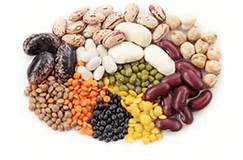 4. Broccoli
4. Broccoli
Nutrition Facts (1/2 cup, boiled.): 31 calories, 3g protein, 31mg choline- 5. Pinto Beans: Gut health is a hot topic nowadays and pinto beans have been shown to increase propionate production, a microbial metabolite that aids in gut health.
Nutrition Facts (1/2 cup, boiled.): 103 calories, 6.1g protein, 30.2mg choline
- 1. Soy milk: Swap your almond milk or any other dairy-free milk for soy milk from time to time as it contains many of the critical vitamins and minerals we need that other dairy-free alternative milks do not offer to the extent soy milk does!
- Omega 3
And lastly, we can’t neglect omega 3’s! There is an extensive amount of research that reveal their powerful benefits and roles in our bodies even in the earliest stages of life. To name a few, they are anti-inflammatory, help fight against autoimmune diseases and improve bone and joint health. Some sources include;- 1. Seaweed
Nutrition Facts (1/2 cup): 30 calories, 1.9g protein, 30.2mg omega 3  2. Flax, chia, and hemp seeds
2. Flax, chia, and hemp seeds
-Nutrition Facts (1 oz. flax seeds): 151 calories, 5.2g protein, 6388 mg of omega 3
– Nutrition Facts (1 oz. chia seeds): 138 calories, 4.7g protein, 4915mg of omega 3
-Nutrition Facts (1 oz. hemp seeds): 161 calories, 9.2g protein, 1100 mg of omega 3- 3. Walnuts
Nutrition Facts (1 oz.): 183 calories, 4g protein,, 2542mg choline - 4. Edamame
Nutrition Facts (1/2 cup, boiled): 39 calories, 3.8g protein, 300mg choline
- 1. Seaweed
Tips to make your plant-based diet as healthy as possible
- Eat healthy types of carbs. As I mentioned above, a plant-based diet doesn’t contain “white”or processed carbs. But it’s possible some people forget this. Eating a lot of refined carbs takes away many of the health benefits.
- Add fiber in slowly. It is possible to get too much fiber especially if you are going from a highly processed diet to a plant-based diet. The large increase in high-fiber foods can cause gastrointestinal discomfort. So add fiber in slowly and see how your body reacts.
- Consume a variety of foods. You need to make sure you’re getting adequate amounts of critical vitamins and minerals therefore it’s important to switch it up and not consistently eat the same thing.
- Include variety to ensure you’re getting in all the critical vitamins and minerals. Many of us are creatures of habit but when consuming a plant-based diet – so make sure you switch up your meals to make sure you’re getting the nutrients we need.
- Consume “nutrients of concern” rich foods:
Protein: nuts, seeds, legumes, whole grains, quinoa, chia/flax/hemp seeds, (optional non GMO soy like firm tofu and edamame), seitan (if you don’t have issues with gluten)
Calcium: fortified nondairy milks and yogurts, chia seeds, almonds, leafy greens, (optional calcium processed non GMO tofu)
Vit B 12: nutritional yeast, fortified non-dairy milks/yogurts
Omega 3: flaxseeds, leafy greens, walnuts and a vegan omega 3 supplement
Choline: will likely need a supplement, especially if trying to conceive or pregnant
Iron: legumes, spinach, fortified cereals and grains, soybeans, cashews, dark chocolate
Vit D: Try fortified nut milks - Try to add in a protein source at each meal. It helps keep you feeling full longer, and is important for muscles.
- Oxalates and phytates, sometimes called anti-nutrients, reduce absorption of calcium, iron, and other minerals, but they don’t block them completely. Oxalates are highest in certain dark leafy greens such as spinach and beet greens; kale and turnip greens have less. It doesn’t mean you need to avoid spinach and beet greens by any means – just include a variety of greens like kale and turnip greens.
- Ask your doctor to check for nutrient deficiencies with blood tests. Example: Vit D, Vit B12, iron. Not all nutrients deficiencies show up in blood tests (i.e. calcium) Ask your doctor if you need a bone mineral density test.
- Pay attention to how your body feels on a plant based diet. If you feel more fatigue or have worsened carb cravings, this style of eating may not be for you!
- Don’t try to meet your protein needs with overly processed soy products (like fake chicken!) If you are going to include soy in your diet, go for unprocessed non GMO firm tofu or edamame.
- Mental health is just as important as physical health, so if you feel like a treat that does not “confine” to a plant-based diet, do not feel guilty, treat yourself!
- Start with small changes instead of a drastic change from your habitual diet. Your body needs to adjust to the increase in fiber intake from all the vegetables and fruits.
Bottom line
There is no question that a plant based diet is healthy and that you can meet all of your nutritional needs with some planning. Actually, it’s probably easier to meet your nutritional needs on this diet compared to the highly processed standard American diet. A plant based diet may be especially helpful for someone who has heart disease – or someone who wants to prevent it.
But as noted above, be sure to include variety in your diet and don’t depend on products like “fake” chicken to meet your protein needs! You may likely need some supplementation.
If you don’t feel like following plant based diet 100% of the time, try being a flexitarian! Have a few plant based meals a week or even one a day. You’ll still get some of the health benefits.
 I’d like to thank Catherine Scott Fischer for writing this blog post. Catherine is a senior at New York University studying Nutrition and Dietetics. She was born and raised in Belgium and moved to the US when I was 18. This move coincided with a drastic change in her diet and she developed a passion for healthy, plant-based food! She has been vegetarian for 6 years and transitioned into a vegan lifestyle a year and a half ago. Catherine loves running, dancing and cooking! Stay tuned for more of her blog posts.
I’d like to thank Catherine Scott Fischer for writing this blog post. Catherine is a senior at New York University studying Nutrition and Dietetics. She was born and raised in Belgium and moved to the US when I was 18. This move coincided with a drastic change in her diet and she developed a passion for healthy, plant-based food! She has been vegetarian for 6 years and transitioned into a vegan lifestyle a year and a half ago. Catherine loves running, dancing and cooking! Stay tuned for more of her blog posts.
References:
What is Choline? An Essential Nutrient With Many Benefits
Choline in Pregnancy: Folate’s Long Lost Cousin
17 Science-Based Benefits of Omega-3 Fatty Acids
Mushrooms Are The Only Source of Vitamin D in The Produce Aisle
42% of Americans Are Vitamin D Deficient. Are You Among Them?
What is Vitamin D and What Does It Do?
9 Health Benefits of Vitamin B12, Based on Science
Chia Seeds 101: Nutrition Facts and Health Benefits
Why Tempeh Is Incredibly Healthy and Nutritious
10 Health Benefits of Spirulina
The 9 Healthiest Beans and Legumes You Can Eat
RELATED POSTS
MEET MARTHA
I especially love problem-solving, whether it’s helping women defeat issues plaguing them for years, helping a busy executive find practical ways to get heart healthy, or providing tips to help you reverse diabetes. That’s why I’m on a constant quest to expand my knowledge by staying on top of the latest research.
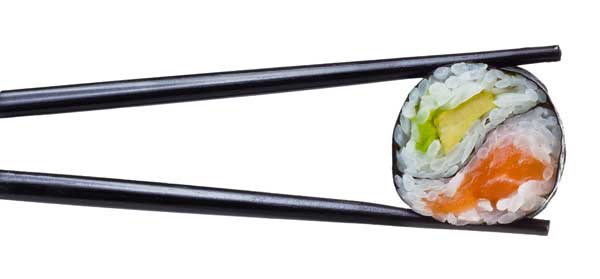
20 Ways To Eat Out 550 Calories or Less!
No time to cook? We’ve got you covered. Here are 20 healthy meals from a variety of cuisines that won’t pack on the pounds. Most of them also have less than 30 grams of carbs.
Subscribe to my newsletter and get this free download.
